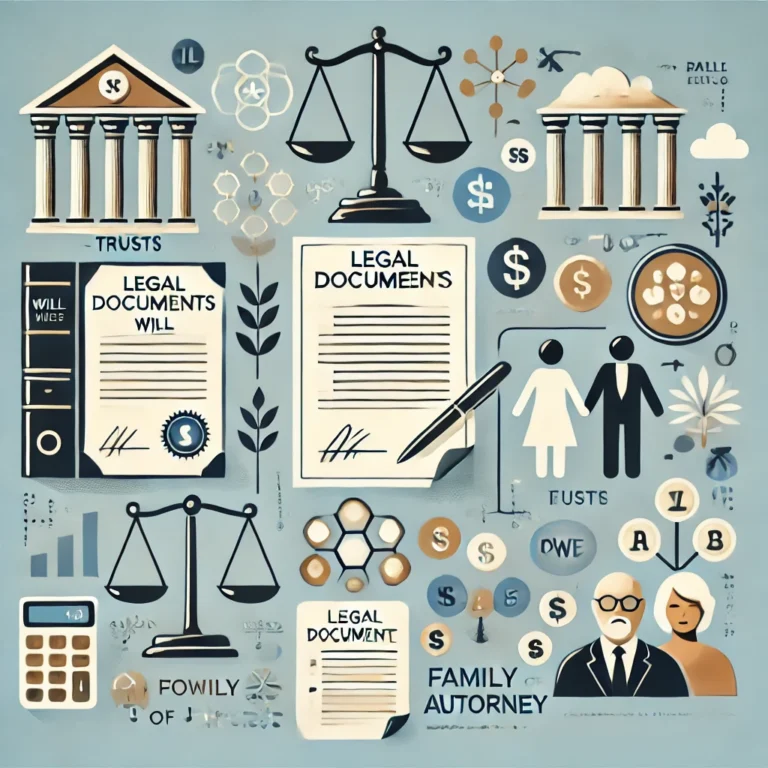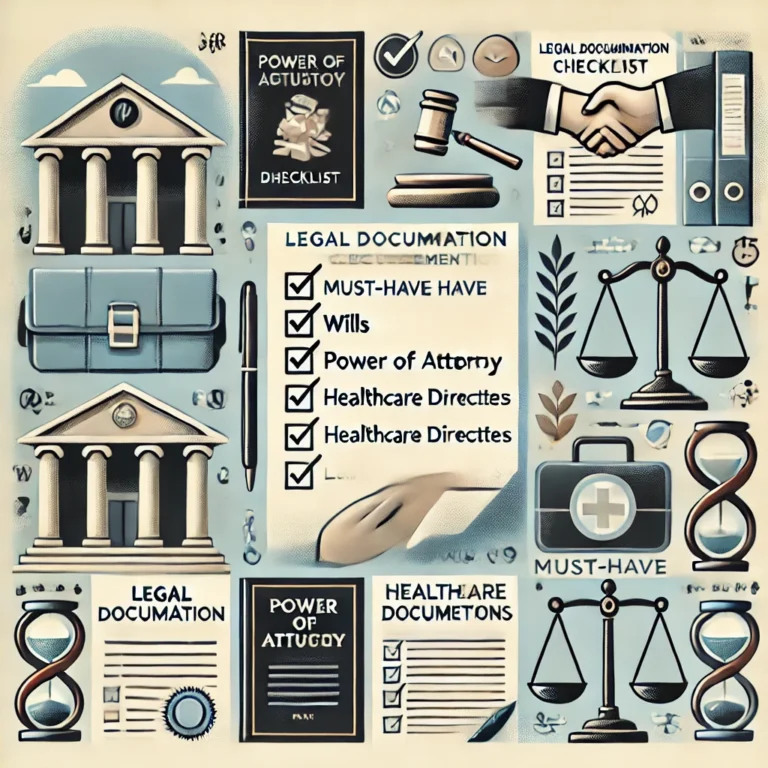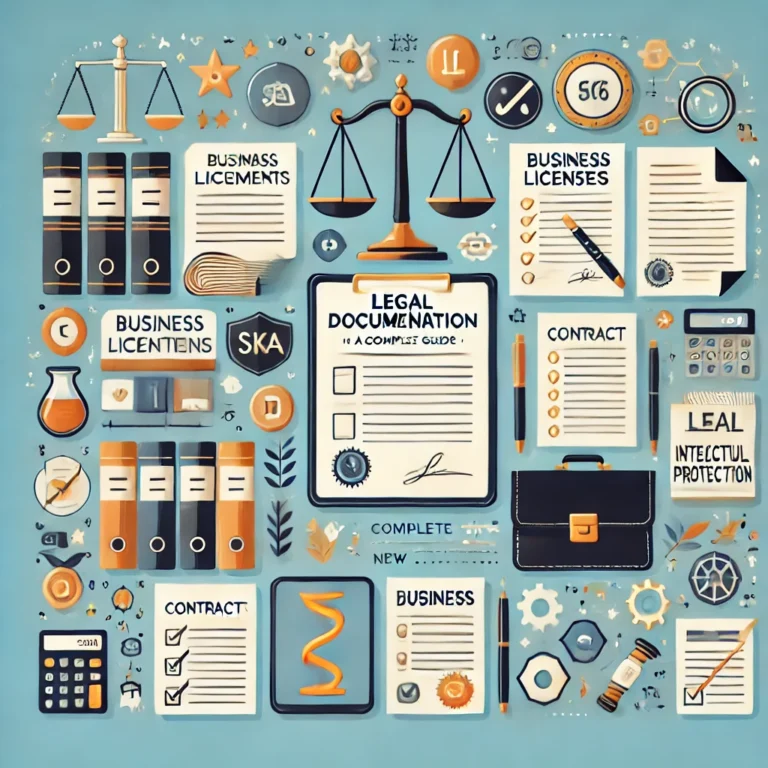Understanding the Basics of Legal Documentation for Personal and Professional Use
In today’s fast-paced world, understanding legal documentation isn’t just a skill reserved for lawyers and business professionals. Whether you’re renting an apartment, starting a new job, or setting up a small business, you’ll undoubtedly come across important legal documents. Knowing the basics of legal documentation can save you a lot of headaches and even help you avoid costly mistakes.
If you’re wondering where to start, don’t worry! This article will break down the essential elements of legal documentation for both personal and professional use in a way that’s easy to understand.
What is Legal Documentation?
Legal documentation refers to any written or printed material that records a legal agreement, rights, or obligations between individuals, organizations, or companies. These documents carry legal weight, meaning they can be enforced by courts or governing bodies.
In simple terms, legal documents are proof of an agreement or a record of something important in your personal or professional life. The key to mastering these documents is understanding their purpose, how they work, and why they’re important.
Why is Legal Documentation Important?
Legal documentation is vital because it ensures that all parties involved in a transaction or agreement are on the same page. Without proper documentation, disputes could arise, leading to potential legal action, financial loss, or damaged relationships.
Imagine agreeing on a rent price with your landlord verbally, only to have them raise the price a few months later. Without a lease agreement, you wouldn’t have any formal proof to challenge the increase. This is just one example of how legal documentation can protect your interests.
Personal vs. Professional Legal Documents: What’s the Difference?
Legal documents can be broadly categorized into personal and professional types, though there’s often overlap between the two.
- Personal Legal Documents: These include contracts and agreements that relate to your private life, such as wills, power of attorney, prenuptial agreements, and leases.
- Professional Legal Documents: These are documents related to business transactions, partnerships, employment, intellectual property rights, and more.
Although both types serve different purposes, they follow the same basic legal principles.
Key Elements of Legal Documentation
While legal documents can vary greatly in complexity, they all share some common components:
- Clear Definitions: Legal documents define key terms clearly to avoid ambiguity. For example, in a rental agreement, the “tenant” and “landlord” must be clearly identified.
- Terms and Conditions: These are the specific rules both parties must follow. For example, a loan agreement may include repayment terms and deadlines.
- Signatures: Most legal documents require signatures from all parties involved to make them legally binding.
- Dates: The dates when the agreement was signed and when it comes into effect are crucial for tracking its validity.
- Witnesses or Notaries: In some cases, documents may need to be witnessed or notarized for them to hold up in court.
Common Types of Personal Legal Documents
1. Last Will and Testament
A will outlines how you want your assets distributed after you pass away. It’s an important document for ensuring that your loved ones are taken care of and that your wishes are honored.
2. Power of Attorney
This document gives someone else the authority to make legal decisions on your behalf, typically when you’re incapacitated. There are different types of power of attorney, including medical and financial.
3. Lease Agreement
If you’ve ever rented an apartment or house, you’re familiar with a lease agreement. This document outlines the responsibilities of both the tenant and landlord, including rent payments, maintenance, and other terms.
4. Prenuptial Agreement
A prenuptial agreement is a legal contract signed before marriage that outlines how assets will be divided in the event of a divorce. It can protect personal property and clarify financial expectations.
Common Types of Professional Legal Documents
1. Employment Contract
An employment contract lays out the terms of employment, such as salary, job responsibilities, and termination conditions. It protects both the employer and employee by clearly outlining each party’s obligations.
2. Non-Disclosure Agreement (NDA)
An NDA is used to protect sensitive information. If you’re starting a business or working on a project that involves confidential information, an NDA ensures that anyone you work with cannot disclose that information to third parties.
3. Partnership Agreement
A partnership agreement is a contract between two or more parties who want to run a business together. This document outlines roles, responsibilities, and the division of profits.
4. Business Plan
While not always seen as a legal document, a business plan can include agreements about financing, intellectual property, and the roles of various stakeholders. It’s often the foundation of any startup or new business.
How to Draft a Legal Document

Drafting a legal document might seem intimidating, but with a bit of care and attention, you can create a solid contract or agreement that will protect your interests.
1. Identify the Purpose
Start by identifying the purpose of the document. Are you drafting a lease? A business partnership agreement? Knowing the goal will help you outline the structure and content.
2. Include Essential Components
Be sure to include all necessary sections like definitions, terms and conditions, dates, and signatures. If you’re unsure, use templates or consult a lawyer to ensure you haven’t missed anything crucial.
3. Use Clear and Concise Language
Legal jargon can be confusing, but your document doesn’t have to be. Keep the language straightforward and avoid ambiguity. This will reduce the chances of misinterpretation.
4. Review and Revise
Always review your document for accuracy and completeness. It’s a good idea to have someone else, preferably a legal professional, look over it before you sign anything.
When Should You Consult a Lawyer?
While it’s possible to draft some legal documents on your own, there are situations where you should absolutely consult a lawyer. If you’re dealing with complex matters like real estate transactions, intellectual property, or intricate business contracts, having legal expertise can prevent costly mistakes.
A lawyer can also ensure that your document adheres to local laws and regulations, making it enforceable in court if necessary.
Digital Legal Documentation: The Rise of E-Signatures
In today’s digital world, many legal documents are signed electronically. Thanks to platforms like DocuSign and Adobe Sign, you can create, send, and sign contracts without ever printing a piece of paper.
E-signatures are legally binding in many countries, including the United States, thanks to laws like the Electronic Signatures in Global and National Commerce Act (E-Sign Act). However, it’s important to ensure that any e-signature platform you use complies with the necessary legal standards.
Common Mistakes to Avoid in Legal Documentation
1. Leaving Out Key Details
A vague contract can lead to disputes down the line. Be thorough in your descriptions and ensure that all parties understand their roles and responsibilities.
2. Not Reading Before Signing
It’s surprising how many people sign contracts without reading them. Always read legal documents carefully before signing. If something doesn’t make sense, ask for clarification.
3. Failing to Keep Copies
Once signed, keep a copy of the legal document in a safe place. You may need it for reference in the future, especially if issues arise.
The Benefits of Proper Legal Documentation
Having proper legal documentation in place offers peace of mind. Whether you’re signing a contract, renting a property, or protecting intellectual property, legal documents ensure that your rights are safeguarded. In addition, they can help you avoid disputes, establish clear expectations, and provide legal recourse if agreements are violated.
How to Organize and Store Legal Documents
Organizing and storing your legal documents is crucial. You never know when you’ll need to reference them, so it’s best to keep everything in a secure location. Digital copies should be stored with backup systems, and physical copies should be stored in a safe, fireproof box.
Conclusion
Understanding the basics of legal documentation is essential for both your personal and professional life. From leases and wills to employment contracts and NDAs, having these documents in place can protect you in the long run. By following best practices, seeking legal advice when necessary, and staying organized, you’ll navigate legal agreements with confidence.
FAQs
1. What makes a legal document enforceable? A legal document is enforceable when it clearly outlines the terms, is signed by all involved parties, and complies with local laws and regulations.
2. Can I create my own legal documents without a lawyer? Yes, you can create basic legal documents using templates, but for more complex matters, it’s wise to consult a lawyer.
3. What is the difference between a contract and an agreement? An agreement is a mutual understanding between parties, while a contract is a legally binding agreement that can be enforced in court.
4. How long should I keep my legal documents? It’s advisable to keep legal documents for as long as they are relevant. For instance, keep tax documents for at least seven years and contracts for the duration of their terms plus a few years after.
5. Are e-signatures legally valid? Yes, e-signatures are legally valid in many countries, provided they meet the necessary legal standards. Be sure the platform you use is compliant with the E-Sign Act or equivalent local legislation.







